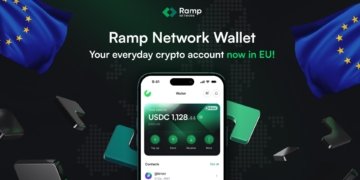
Comparing Bitget and Plus Wallets for Enhanced Web3 Integration
In the rapidly evolving landscape of decentralized finance (DeFi) and blockchain technology, digital wallets play a crucial role as the gateways to managing and utilizing various digital assets. As Web3 technology strives to become more mainstream, platforms like Bitget and Plus are stepping up their offerings to ensure seamless user experiences while navigating this new frontier. This article explores how Bitget and Plus wallets are making strides in enhancing Web3 integration.
The Rise of Web3 and the Importance of Digital Wallets
With the advent of Web3, a new era of the internet is emerging—a decentralized version that offers users more control over their data and privacy. In this context, digital wallets are becoming integral, as they allow users to:
- Access decentralized applications (dApps): A digital wallet acts as the key to entering a plethora of decentralized applications, ranging from finance to gaming.
- Securely store and manage cryptocurrencies: With the exponential rise of cryptocurrencies, wallets provide a secure way to store, manage, and transact digital assets.
- Participate in blockchain ecosystems: Wallets enable users to engage in decentralized governance, staking, and other activities within blockchain ecosystems.
Given their pivotal role, selecting the right wallet can significantly impact one’s Web3 experience. Let’s examine how Bitget and Plus wallets are catering to this demand.
Bitget Wallet: A Deep Dive
Bitget has been making headlines with its continuous expansion and strategic initiatives in the Web3 sphere. The Bitget wallet is particularly noteworthy for the following features:
User-Friendly Interface
Bitget prioritizes user experience through a sleek and intuitive interface that accommodates both newcomers and seasoned crypto enthusiasts. This focus on user experience ensures that even those unfamiliar with the blockchain technology can navigate its platform with ease.
Security Features
Understanding the need for robust security, Bitget implements state-of-the-art encryption and multi-signature security protocols. Users can rest assured that their sensitive information and assets are well-protected against unauthorized access.
Multi-Chain Support
Bitget wallet supports an impressive range of blockchain networks, from Ethereum and Binance Smart Chain to Polkadot and beyond. This multi-chain compatibility provides users with versatility in managing a wide variety of digital assets across different networks.
Staking and Rewards Programs
In a bid to foster community engagement, Bitget offers staking and rewards programs where users can earn passive income by participating in the ecosystem. Notably, the platform’s PLUS Rewards initiative incentivizes both new and existing users to explore more functionalities within the network.
Plus Wallet: A Closer Look
The Plus wallet has emerged as a robust contender in the digital wallet space, providing a range of features designed for enhanced Web3 interaction. Here’s what sets it apart:
Streamlined Asset Management
The Plus wallet offers a comprehensive dashboard that allows users to monitor and manage their digital assets seamlessly. With its real-time analytics and asset performance tracking, users receive actionable insights into their portfolios.
Advanced Security Measures
Security is at the forefront of Plus wallet’s design, incorporating advanced biometric authentication and hardware wallet integration. These measures ensure that security breaches are kept at bay and user confidence is boosted substantially.
dApp Marketplace
Revolutionizing user engagement, Plus wallet includes a built-in dApp marketplace, allowing users direct access to a myriad of decentralized applications. This feature not only enhances convenience but also encourages the wider adoption of decentralized technologies.
Cross-Platform Accessibility
Plus wallet has positioned itself as an accessible solution across multiple platforms, including mobile and desktop. This widespread availability ensures consistent functionality regardless of the user’s device preference, enhancing the user experience across the board.
Key Differentiators Between Bitget and Plus Wallets
While both Bitget and Plus wallets offer compelling features for navigating the Web3 space, they do exhibit some differences that may influence user choice:
- Interface and Usability: Bitget appeals to a broader audience with its straightforward interface, while Plus offers more sophisticated analytics for users focused on asset performance.
- Security Protocols: Although both prioritize security, Plus wallet’s biometric and hardware integration may appeal to users seeking additional layers of protection.
- Compatibility and Accessibility: Bitget’s extensive multi-chain support contrasts with Plus’s cross-platform accessibility, catering to different user priorities.
- Community Engagement: Bitget’s PLUS Rewards initiative is an enticing feature for those interested in community participation and earning rewards through ecosystem involvement.
Conclusion: Choosing the Right Wallet for Web3 Needs
Navigating the emergent world of Web3 requires the right tools, and selecting a suitable digital wallet is a step in the right direction. Both Bitget and Plus wallets offer unique features tailored to empower users in the decentralized landscape. Whether you value a user-friendly experience, robust security measures, or innovative features like dApp marketplaces, the choice between these two depends on individual preferences and usage scenarios.
As Web3 continues to evolve, Bitget and Plus wallets are positioned to be at the forefront, driving innovation and enhancing how users interact with and benefit from decentralized technologies. This makes them a crucial part of the shift towards a more open and equitable digital economy.
Ultimately, deciding between Bitget and Plus wallets will cater to your unique needs, ensuring that your ventures into the vibrant world of Web3 are both secure and rewarding.
“`













